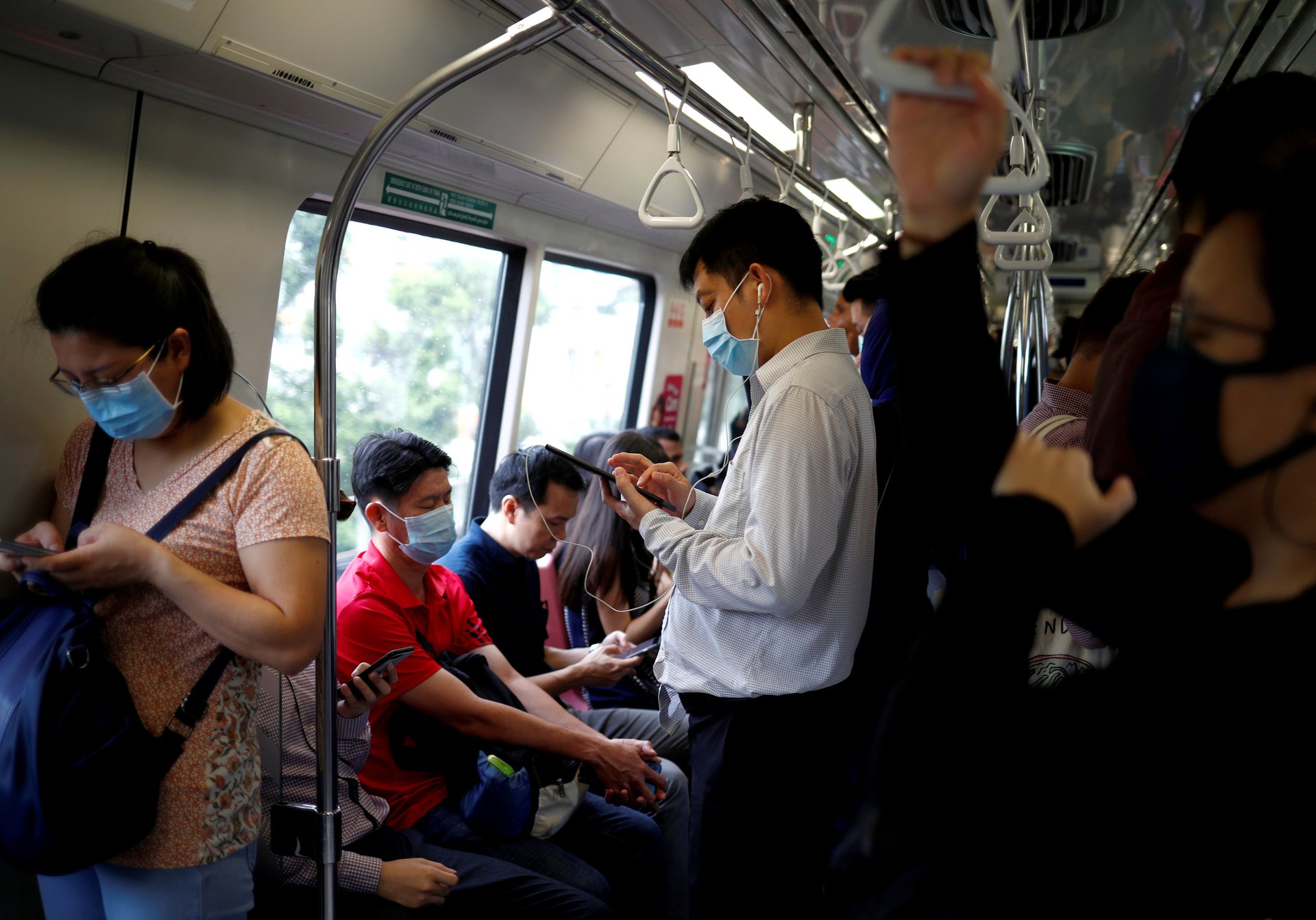The Singaporean government is taking a collective pay cut out of coronavirus solidarity
Update: This story has been updated to include an announcement of a pay cut by the Hong Kong government.


Update: This story has been updated to include an announcement of a pay cut by the Hong Kong government.
As Singapore battles the novel coronavirus outbreak, its government said today that its president, cabinet ministers, and political office holders will take a one-month pay cut to “show solidarity with fellow Singaporeans.”
The announcement was made to parliament by deputy prime minister Heng Swee Keat, who is also the finance minister. He said that public servants at the front line of the fight against Covid-19 would also receive a special bonus of up to a month’s salary, including health care workers and some officers at agencies that have been directly involved with the epidemic response.
Hours after Singapore’s pay cut announcement, the Hong Kong government followed suit. In order to “show that the governing team are… riding out the difficult times with the public,” chief executive Carrie Lam and all politically appointed officials would donate a month’s salary for charity, according to a statement. This comes several days after the government offered front line medical staff working in high-risk areas a bonus of 20% of their daily basic salary or HK$500 Hong Kong ($64) per day, whichever is higher.
The Singaporean prime minister Lee Hsien Loong is the highest paid national leader in the world, with an annual salary of S$2.2 million ($1.6 million). The annual salary for the president is S$1.54 million, and S$1.1 million for ministers, according to a 2012 white paper on government salaries (pdf). As part of the coronavirus measures, members of parliament will have their average monthly allowance of S$16,000 cut by half for a month.
The second-highest paid world leader after Singapore’s is Hong Kong’s Lam, who makes HK$5 million a year. The Swiss president Ueli Maurer makes just under CHF455,000 ($470,000) annually. US president Donald Trump makes a little less, at $400,000 per year, but perks include an annual expense allowance of $50,000, $100,000 in non-taxable income for travel expenses, and another $19,000 for entertainment. Trump has made it a point to donate his pay check, giving away his salary to offices like the National Park Service, the Department of Education, the Department of Veterans Affairs.
The trade-reliant Singaporean economy is expected to be hard hit by the epidemic, with economists predicting a 0.6% contraction—a first since the 2009 financial crisis. Outlining the budget last week, the government said it had earmarked S$5.6 billion to help businesses and families through the economic downturn, with extra spending expected to lead to the biggest deficit in more than a decade.
Earlier this week, Singapore sovereign wealth fund Temasek also announced that it would freeze all salaries and promotion increases. Senior management were also given the option to take a voluntary pay cut of up to 5% for up to a year, which would be matched dollar for dollar by the company and donated to staff volunteering initiatives. The CEO, Ho Ching, is the wife of the prime minister.
Singapore has earned wide praise for its response to the Covid-19 outbreak, with stringent close contact tracing and strict quarantine polices playing a part in keeping the total case count relatively low. As of today, the island state of 5.6 million has 96 confirmed cases, with no deaths reported and 66 people discharged. Since Feb. 22, it has had five consecutive days in which recoveries have outnumbered new confirmed cases. Experts have also commended the Singaporean government for good risk communication, warning its citizens early on on the likelihood of community spreading rather than playing down the risk with overly assuring messaging.